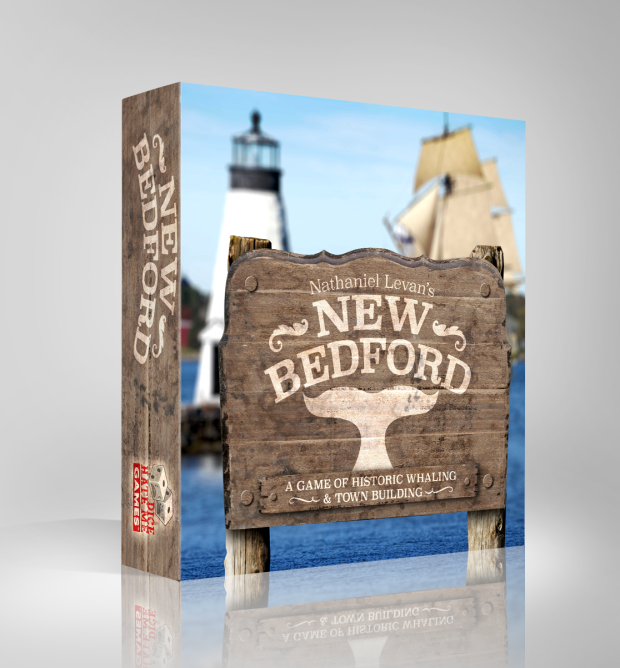
This post is not a review, but a preview for a game that is currently seeking funding on Kickstarter. Final art, components, and rules are subject to change.
Dice Hate Me Games was one of the first board game publishers to get their start on Kickstarter. They have done quite well for themselves and have a very strong reputation as a great company that puts out consistently great games.
| Five of the Town action spaces |
Play takes place in phases. The first is the Action Phase, where players will take turns placing workers onto the seven starting action spaces, as well as any built buildings, and resolving their effects immediately. Town spaces are not blocked once workers are placed on them, but the player who places on each space first will get a bonus.
| Light colored buildings can be used for actions, while dark colored buildings are worth points at the end of the game. |
Players will also be able to build their own buildings. Unlike Town spaces, buildings can only be used once per round. Additionally, the player who builds a building owns it, and can use it on future turns for free, while other players who use the building will have to pay the owner $1. There are also buildings which cannot be used as action spaces, but rather score the owning player points at the end of the game
When a player's ship returns to port during the Movement phase, players will have to pay a "lay." Each whale token paid for, will earn the player points indicated on the token. Players can also choose to (or they may have to if they can't afford lays for all their whales) sell any whales tokens that return to port. When a player sells a whale token, she receives half of the cost of each sold token from the bank. Then, moving in clockwise order from the seller, each player will have the opportunity to purchase the sold tokens for the full cost. Any amount paid goes to the bank, and if a player cannot or chooses not to purchase whale tokens, the next player clockwise will have the opportunity, and so on.
The game continues in this way for 12 rounds. At the end of the game, players receive points for any whale tokens in their possession, any buildings which score points, and for leftover money ($5=1 point).
New Bedford does a lot of things right - but the best thing about the game is that it is one of those games that is easy to both learn and teach, but will surprise you with its depth after you dive in for subsequent plays.
If you think New Bedford sounds great, go pledge your support for the game on Kickstarter today!
No comments:
Post a Comment